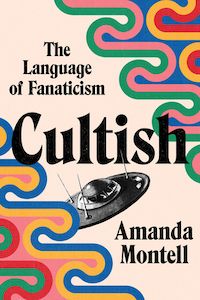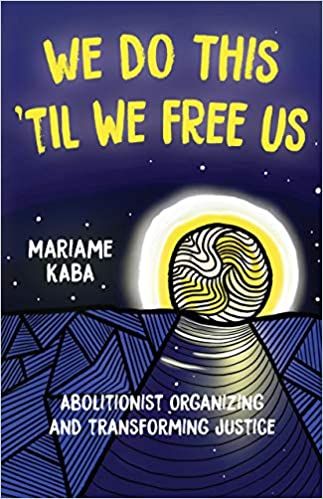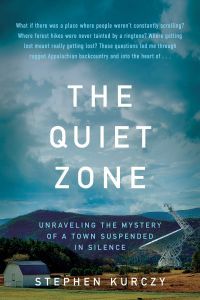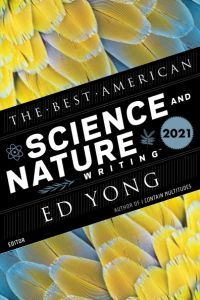I must admit, the majority of books I’ve gravitated toward this past year have been of a purely escapist nature. I’m a sucker for creepy-fun horror and speculative fiction. When I get my weekly NCBD (new comic book day) email, I literally squee. My brain can’t handle anything more serious than genre fiction when it’s already steeped in anxiety and anger over the state of things. But when I’m in the right mindset, I do like to set aside time for more interesting reads.
I know. What’s interesting to me could be a complete snoozefest for you. I’m sure not everyone would be into my extensive (obsessive?) collection of books on sexuality education, and people do look at me funny when I mention my favorite reads on aging and end-of-life care.
But I also find myself engrossed in works that I’m pretty sure have a more universal appeal.
To my mind, truly interesting reads are those that deep dive into important topics, providing me with information that illuminates and allowing me to see the world from a different perspective.
If you agree, read on for a list of interesting reads that caught my eye in 2021. In addition to book recs, you’ll also find links to in-depth articles, reported essays, and even author newsletters. Enjoy!
Controlling Women by Kathryn Kolbert and Julie F. Kay
If you know of the work I do covering sexuality and reproductive health, you’re probably not surprised by the inclusion of this first title. But with the fate of Roe v. Wade hanging in the balance, this is a topic that should interest us all. In this book by legal luminaries Kathryn Kolbert and Julie F. Kay, readers learn about the history of Roe v. Wade and other landmark abortion rights cases, get an overview of abortion-related litigation since then, and are invited to look toward the future by considering abortion rights from a human rights framework. It’s a book filled with the nuts and bolts of how our rights have been stripped from us, yes, but it’s also a book that contains hope.

Cultish by Amanda Montell
I love going down the rabbit hole of language origins, and seeing how language has evolved over time. It’s why I enjoyed Montell’s Wordslut so darn much. So I was excited to see her come out with this more recent read on the social science of cult influence. In this book, Montell explores how cult leaders and other cultural “gurus” use language to attain and maintain their power. Cult leaders: They’re the ultimate influencers. Amiright?

We Do This ‘Til We Free Us by Mariame Kaba
Another timely title, this book by activist and organizer Mariame Kaba educates readers on exactly what it means to “defund the police.” This collection pulls together Kaba’s previous writings and speeches on the movement for abolition, giving us both the anatomy of a movement and an argument for a form of social transformation that seeks to deliver us from police violence and the prison pipeline. It is a rousing call to action. It also pairs well with this New Yorker piece by Keeanga-Yamahtta Taylor: “The Emerging Movement for Police and Prison Abolition.”

The Quiet Zone by Stephen Kurczy
I have often daydreamed about pulling the plug on my Facebook account. Maybe deleting Twitter. Breaking up with all my TV shows. Spending my time reading and putting together puzzles and embroidering flower-bedecked cats onto tote bags. Then I remember how much I love Instagram and, like, how often I check my email inbox — and also the fact that my entire career takes place on the internet.
Anyway.
In The Quiet Zone, Kurczy travels to a town in West Virginia that has a ban on all devices that emanate radio frequencies that might interfere with the local observatory’s telescopes. To some, it sounds like a dream. But while there, he finds himself recording a fascinating (and sometimes troubling) tale of what life is truly like when you chase a quiet idyll, and he learns even more about the role technology plays in our lives.

The Best American Science and Nature Writing 2021 Edited by Ed Yong
I dig these “Best American” essay collections, though I usually gravitate to the one that focuses on food writing. This year, however, I’ve been reading more about nature and, well, I saw that this year’s “Science and Nature” anthology was being edited by science journalist Ed Yong, and after these past two years, I will follow Ed Yong anywhere. This particular edition is filled with interesting reads on everything from the coronavirus to the cosmos to the deep blue sea.
“How the Pandemic Now Ends” by Ed Yong via The Atlantic
During the past two years of the coronavirus pandemic, Ed Yong’s reporting for The Atlantic has been a lifeline. He has been able to take large, sprawling topics and constantly shifting, complex concepts and synthesize them into eminently engaging and digestible longreads that help us make sense of this ongoing emergency in which we find ourselves. I’ve pinpointed this one article from August on the Delta variant’s impact on the pandemic’s eventual end but, really, any of the pieces he’s written on the topic over the past two years would be worth including in this list.
“A White Man’s Bad Day” by Roxane Gay via The Audacity
In the wake of a mass shooting this past March, in which eight people in Atlanta, Georgia, were killed in a racially and sexually motivated incident, Gay wrote an installment of her newsletter in which she highlighted the Anti-Asian violence and discrimination in our history. She used this as a jumping-off point to also explore what we, as a culture, allow white men to do just because they have had a “bad day.” And in a related bonus read from Ly Tran for Vogue, here’s what a bad day actually looks like.
“On the Relationship Between Motherhood and Madness in Victorian Literature” by Kyra Wilder via Literary Hub
This essay by Kyra Wilder on motherhood and madness is creepy and also amazing. While working on her Master’s thesis on stressed-out mothers in Victorian literature, Wilder herself becomes a stressed-out mother. Seeing Wilder weave these two threads together is a thing of beauty. This piece is actually a promo for her memoir, Little Bandaged Days, so you may want to check that out next.
“When the Mob Comes” by Lyz Lenz via Men Yell at Me
Lyz Lenz, the author of both God Land and Belabored, is no stranger to online harassment. Hell, she writes about religion, politics, and womanhood for a living. The recounting of her experiences with the online mob and how that can feel is followed, in this edition of her newsletter, by an interview with journalist Talia Lavin, who gives some solid tips on what you can do about online harassment.
“The Sex Education Pamphlet That Sparked a Landmark Censorship Case” by Sharon Spaulding via Smithsonian Magazine
Let’s cap off this list of interesting reads with this piece from historian Sharon Spaulding on the women’s rights activist Mary Ware Dennett and the pamphlet she disseminated that led to a landmark censorship case. Yes, I’m bookending my list with two items that tie back to the topic of sexuality. Deal with it. I really enjoyed this piece, which is filled with gripping twists and turns in the life of one bad-ass woman, and I’m so stoked Spaulding is writing a whole book about it.
These reads not your bag? You could always take this quiz on what book you should read next instead!










